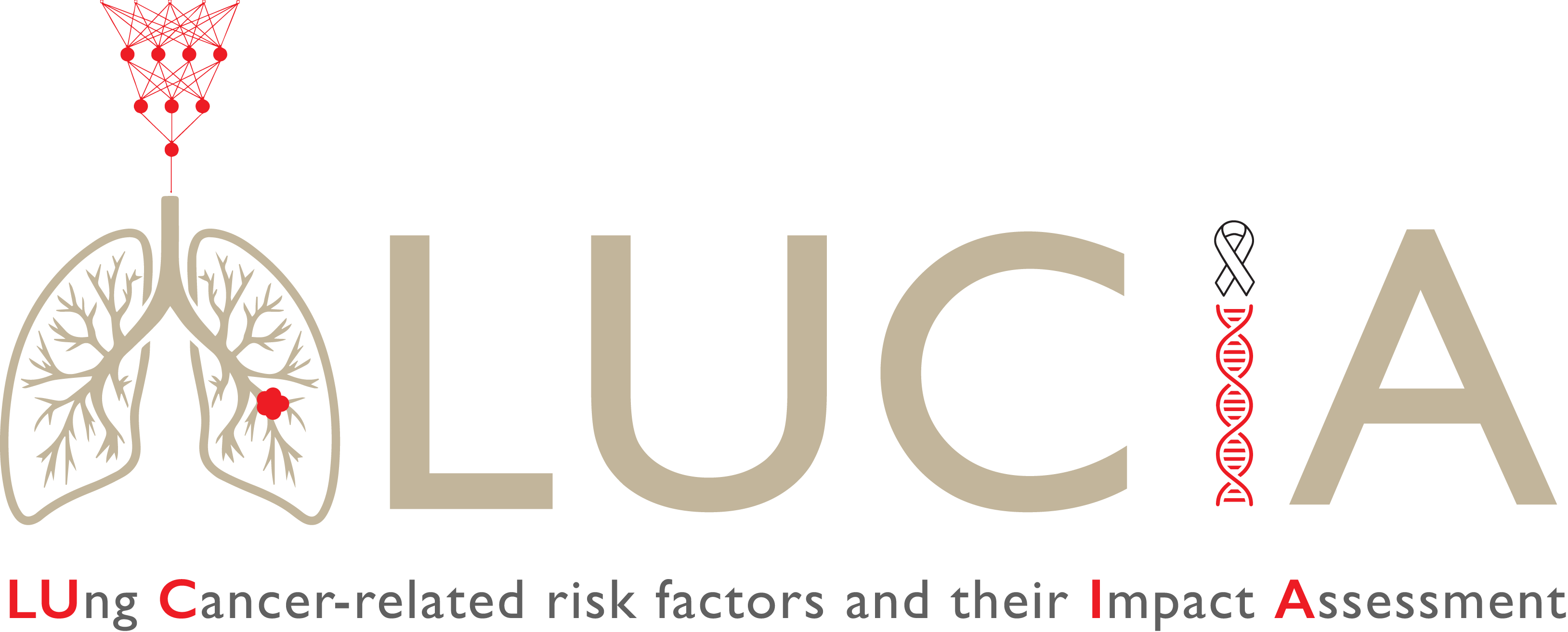LUCIA. Study of risk factors for the improvement of lung cancer early detection and management strategies.
LUCIA

The need for research to research into the risk factors of lung cancer is a reality. In Spain and the Basque Country, lung cancer is one of the most deadly cancers in existence, with incidence in both genders, first in men and third in women, with a total of 22,930 deaths at national level in 2020 and a total of 6,182 deaths in the Basque Country between 2016 and 2020. At European level, this aggressive type of cancer claims the lives of more than 250,000 people a year. Strategies aimed at understanding lung cancer and implementing public policies aimed at prevention and early detection are of vital importance in tackling this health problem.
To try to reverse the situation, the LUCIA project consortium, led by the Technion - Israel Institute of Technology, has 22 members from academic and business institutions, health services, hospitals and research centres internationally, working together to identify and analyse the risk factors for lung cancer.
Aim of the project
The aim of LUCIA is to improve the early detection and management of lung cancer through the in-depth study of risk factors from exposure to individual biology, in order to improve prevention strategies, help implement screening programmes, improve diagnosis and enable more precise medical approaches. The project takes a holistic view of the problem by providing a multidisciplinary approach with each partner's expertise in their respective field of work to deepen understanding of the disease and develop methods for its prevention, diagnosis and subsequent treatment.
The consortium, which has 22 members including academic institutions and other entities, works together to identify and analyse risk factors for lung cancer by focusing on three aspects: individual factors, including lifestyle and exposure to pollutants; external factors, such as the state of urban areas, traffic, climate and socio-economic aspects; and finally biological reactions, including ageing and genetic, epigenetic and metabolic changes.
Vicomtech’s role
Vicomtech provides the necessary infrastructure to design the virtual research environment of LUCIA, as well as to implement the services for data ingestion and integration and the design of the tools for the AI lifecycle management of the project.
Moreover, thanks to the Data Processing & AI Modelling technology, it will be possible to develop tools to process and analyse signals coming from data capture devices. Vicomtech will generate AI models for the analysis of medical images, multi-omics data and for predicting the effect of external risk factors.
The LUCIA project is funded with 14 million Euros from the European Commission's Horizon Europe research and innovation support programme and is part of the new Cancer Mission, a key research and innovation instrument within Europe's Beating Cancer Plan, the European Union's commitment to tackle the problem of cancer in a comprehensive manner. The missions aim to find ‘concrete solutions to some of our biggest challenges’ and deliver tangible results by 2030. The Cancer Mission, where the LUCIA project is located, focuses on one of the greatest challenges facing our society: the cure for cancer; and within the multiple objectives of this mission, it focuses on trying to understand its complexity (in the case of lung cancer) through multidisciplinary collaboration in medicine, bioengineering, biology and computer science, together with key legal, ethical and social aspects.
From 2023 to 2027, the LUCIA project will work to contribute to the EU Cancer Mission together with other Horizon Europe-funded projects and researchers across Europe to understand and prevent different types of cancer.

Looking for support for your next project? Contact us, we are looking forward to helping you.







